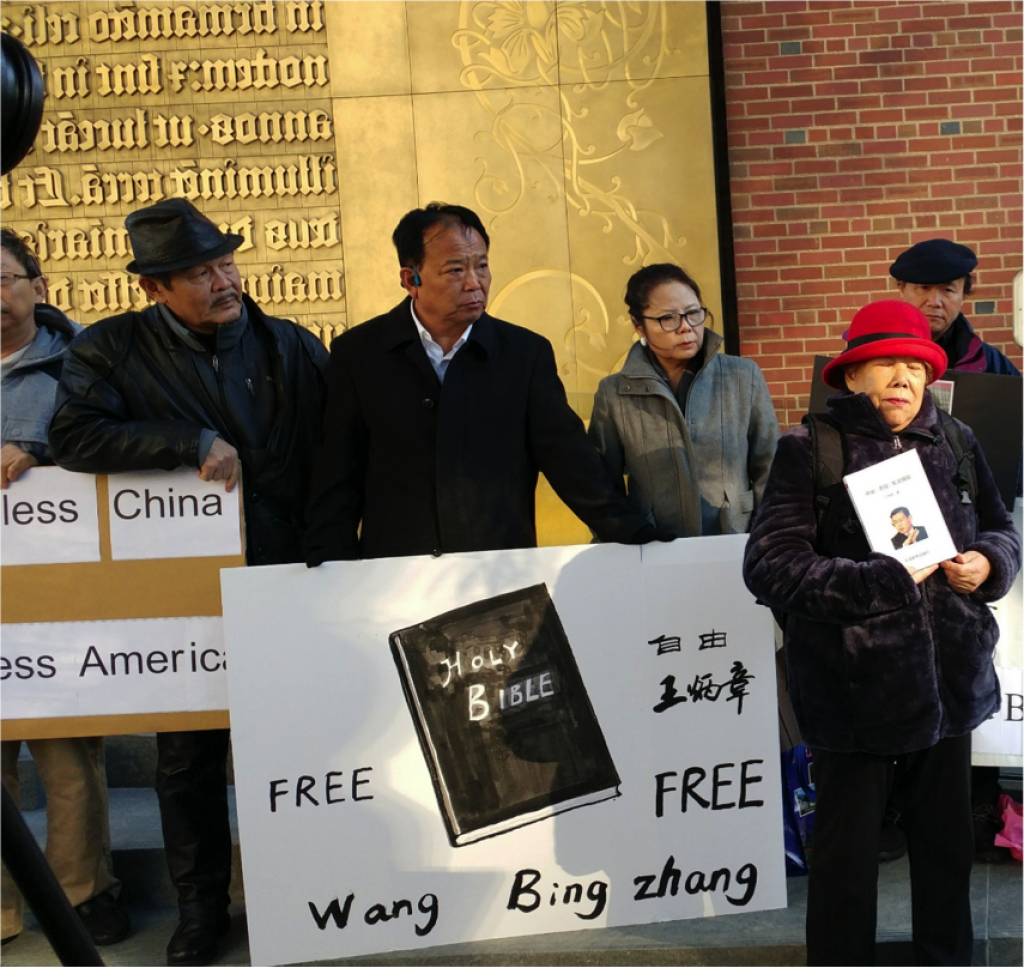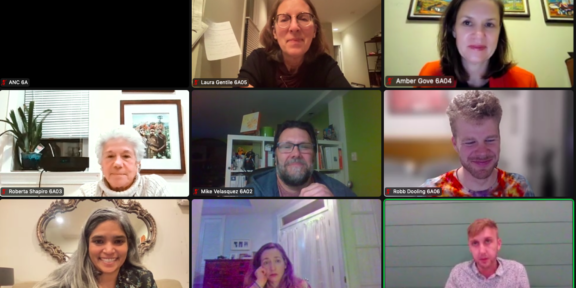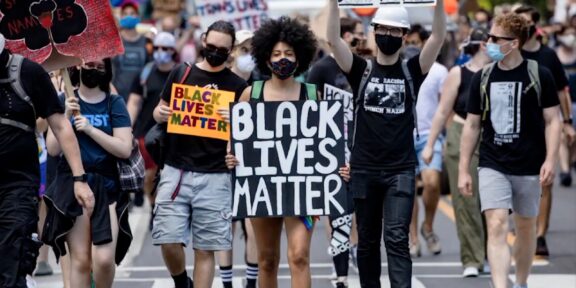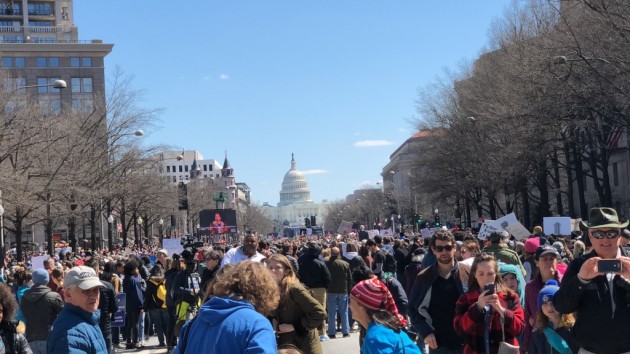By Ian Mahon, Howard University News Service
Washington, D.C.- Chinese demonstrators gathered at the Museum of the Bible at its grand opening last Friday to protest what they call the persecution of Christians in China. Holding signs in both English and Chinese, the protesters gathered to call attention to alleged abuses, most notably to political activist Wang Bingzhang.
“Opening up this Museum of the Bible,” Ye Ning, an attorney, began, “we are here to pray for long mercy and miracle grace to our fellow Christian and brother, Wang Bingzhang.”
Bingzhang, who is currently serving a life sentence in China on charges of espionage and terrorism, is the founder of the Chinese Democracy Justice Party (CDJP). He is considered a political prisoner in the West after speaking out against communism.
About 20 demonstrators, representing the Chinese Democracy Party (CDP), a political party seeking to abolish the one-party communist regime of China, stood before the museum from 9 a.m. to about 11 a.m., taking turns speaking before cameras supplied by their own group. Speakers alternated between Chinese and English as they spoke of the illegal practice of Christian worship in the country, vouching for Wang as a champion of democracy and especially religious freedom who has been imprisoned in China since June 2002.
“He lead us to fight against the satanic evils of communists,” Ning said. “Dr. Wang Bingzhang has been behind us for one-and-a-half decades, and Wang is still suffering from all kinds of inhumane treatment.”
The Museum of the Bible is located at 400 Fourth St. SW, and approximately three blocks away from the U.S Capitol. The building, which covers roughly 430,000 square feet and cost $500 million to build, is not a part of the Smithsonian series of museums and is privately owned by the owner of Hobby Lobby, Steve Green. The museum’s focus on the bible is non-denominational and houses thousands of biblical artifacts from throughout history, including fragments of the Dead Sea Scrolls, though the authenticity of the fragments has been put to question. Though the grand opening was Friday, Nov.17, it was invitation only; the Museum of the Bible is open to the public starting Nov. 18, entry of which is only allowed by free tickets available online.
Religious practice in modern-day China has been controversial. Since the Cultural Revolution instigated by Mao Zedong back in 1966, China has officially embraced state atheism. Though that is the case, people can technically practice their religion but insofar that government watchdog organizations supervise them. According to the Freedom House, the Chinese government under President Xi Jinping has “intensified,” an estimated 100 million people in China facing “’high’ or ‘very high’ levels of persecution.”
Wang is one such Christian; he was imprisoned by the government for his activism, such as starting a pro-democracy magazine entitled China Spring while he was studying overseas in Canada for his doctorate in medicine in 1982, and corresponding with student leaders to dismantle the communist regime in pursuit of a free, democratic government. Wang helped found CDJP, which is officially banned by the Chinese government, and was abducted in Vietnam in 2002 by Chinese spies. Wang was charged for terrorism and espionage by the government and has been languishing in prison ever since.
As the demonstrators came and spoke before their cameras, all the while holding pamphlets and signs such as one with the bible colored in by black sharpie, and another reading “God Bless America, God Bless China,” they would intermittently pray on behalf of Wang who made such a request a week before the museum opening, said Wang Juntao. Wang wanted the CDJP demonstrators to speak at the grand opening of the Museum of the Bible.
“We hold such a simple ceremony,” Juntao said, “I think that that will be the most meaningful ceremony we will have for the tremendous building.”
Juntao was one of the student leaders Wang Bingzhang corresponded with. When Juntao was jailed in 1989 and charged for being one of the instigators of the Tiananmen Square protests, it was Bingzhang who called for his release. In 2013, Juntao held a demonstration in support of his compatriot by locking himself in a cage in Times Square, a protest which shed light on the conditions by which Bingzhang was suffering and the intolerance and brutality of the Chinese government.
“They control all the media in China,” Jin Xiu Hong, a CDJP member from Seattle, said. “They control all the resources in China, they send domestic and international spies to divide, to conquer, to try to destroy Chinese democracy and human rights organizations.”
When the conversation was about living in the U.S., Hong could not say the same.
“Almost none of us were born here, but we are here because we love America,” Hong said. “Freedom of publication, freedom of religion, freedom of assembly, all the freedoms you don’t have in China.”





